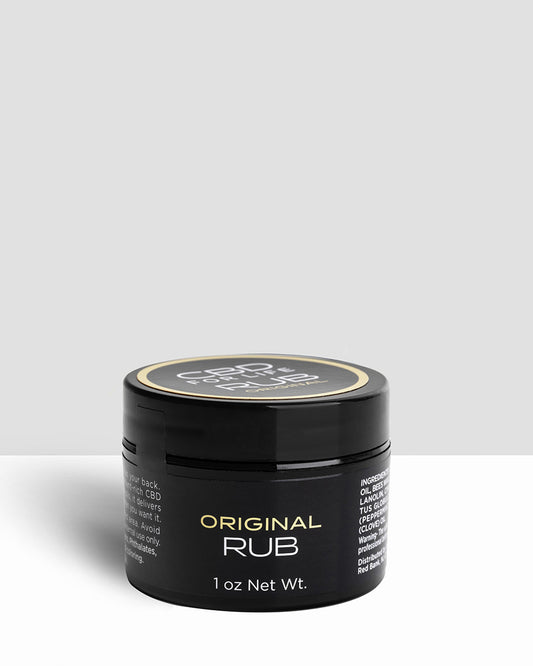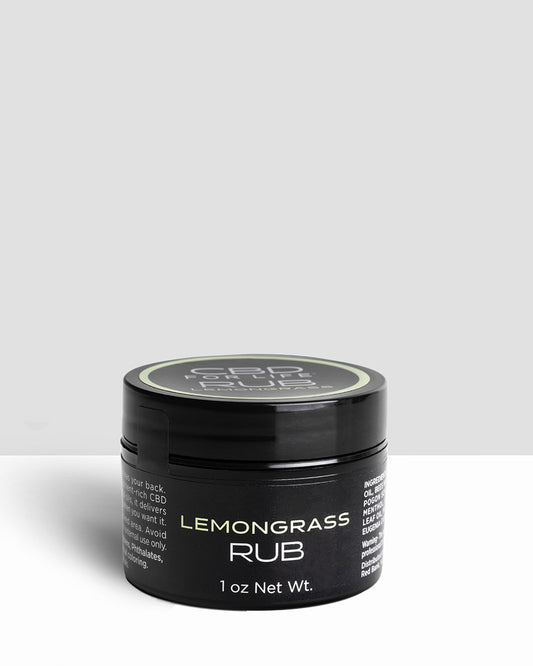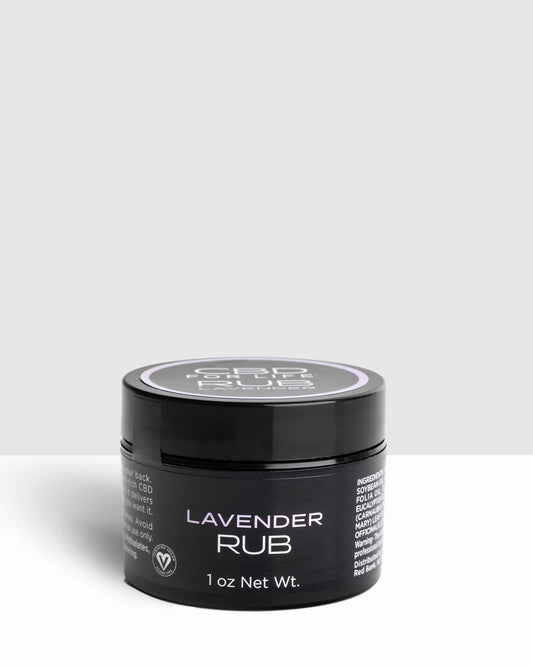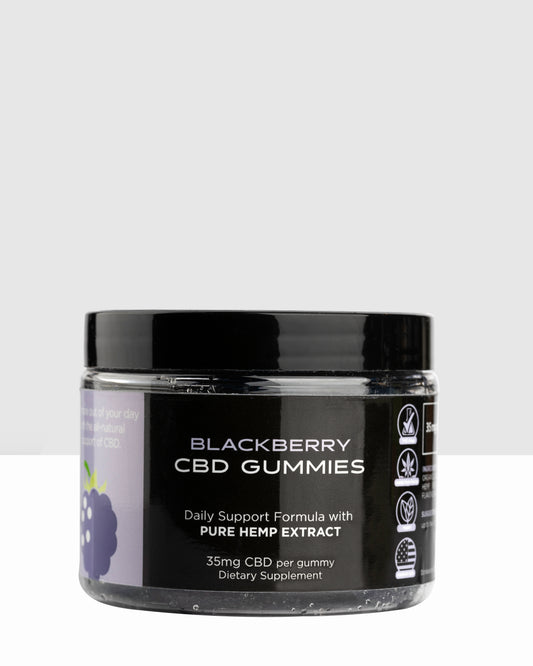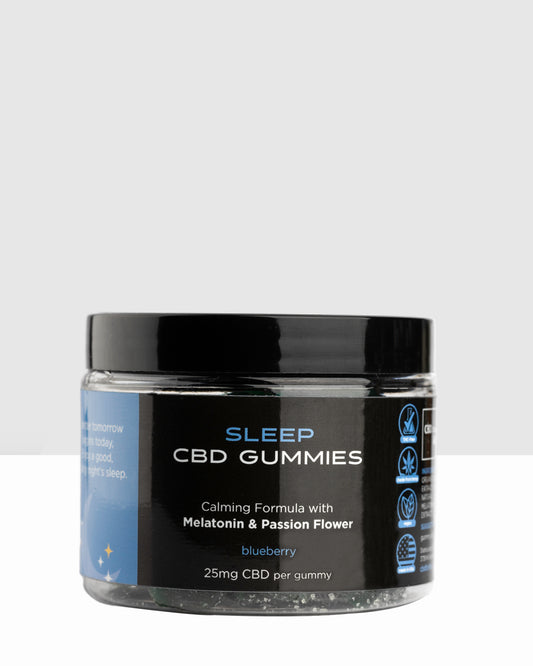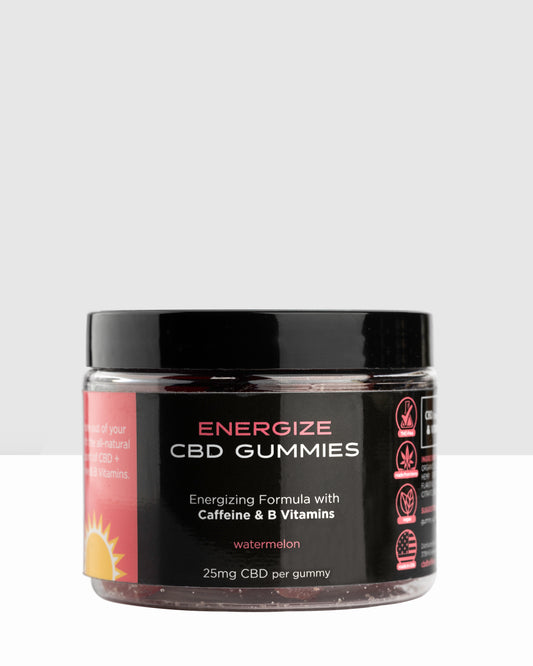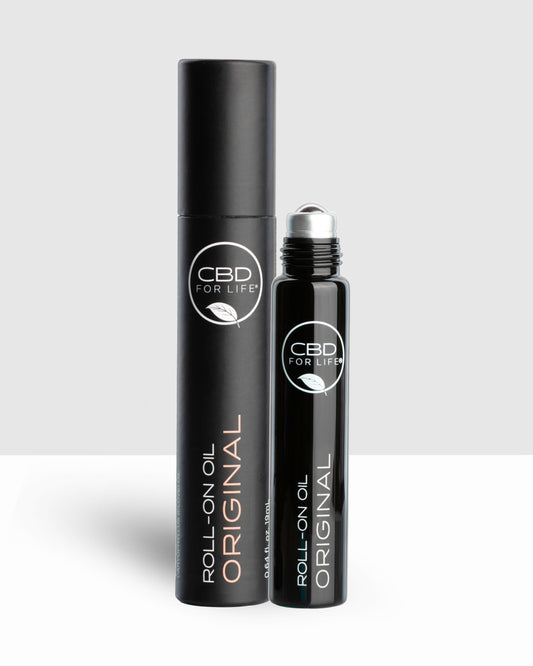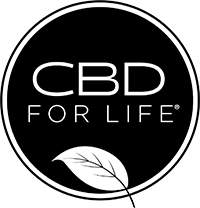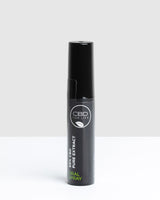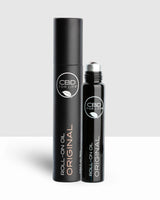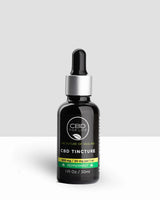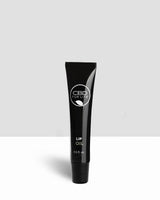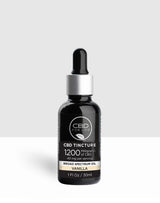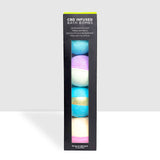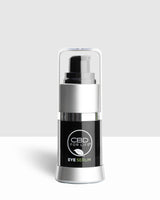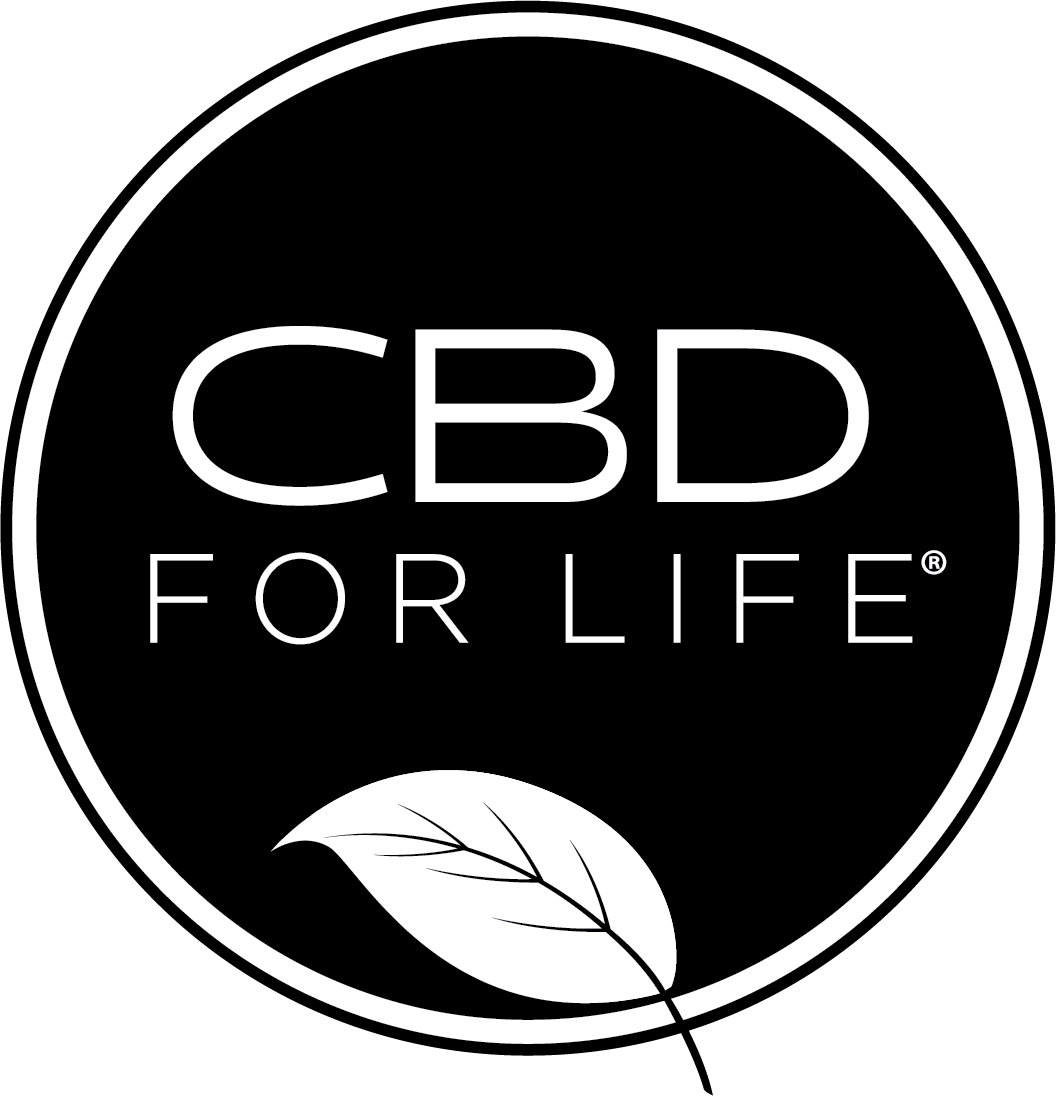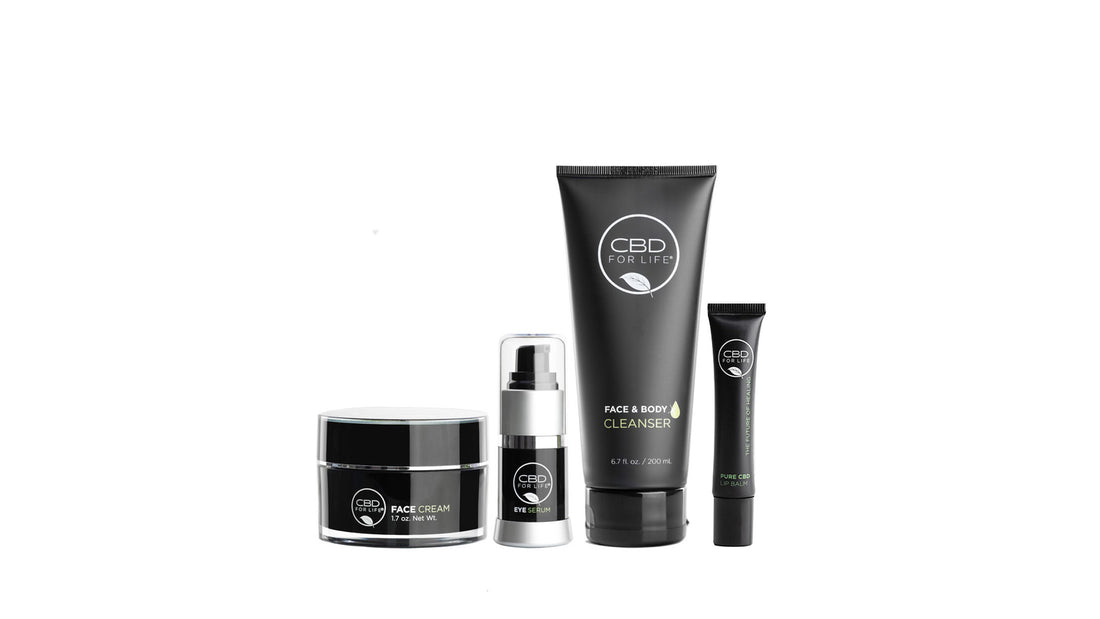
How Long Does CBD Last?
Share
In recent years, CBD has emerged as a rising star, captivating the attention of individuals seeking alternative remedies for various health concerns. As the legal and social landscape surrounding CBD continues to evolve, its popularity has surged, with enthusiasts attributing their positive experiences to its potential therapeutic effects.
CBD's therapeutic potential and non-intoxicating nature have made it particularly intriguing to those who seek alternative approaches to health. Derived from the cannabis plant, CBD is just one of the many cannabinoids present in the plant, known for its potential health benefits.
However, unlike its well-known counterpart THC (tetrahydrocannabinol), CBD does not produce the psychoactive effects associated with feeling "high." This key distinction has helped position CBD as an attractive option for individuals who desire the potential therapeutic benefits of cannabis without the mind-altering effects.
Furthermore, the changing legal landscape surrounding cannabis has significantly impacted CBD's popularity. In many regions, laws and regulations have become more permissive, allowing for the cultivation, production, and sale of CBD products or CBD capsules derived from hemp, a non-intoxicating variety of cannabis with low THC levels. This legal shift has opened up new avenues for businesses to develop and market CBD products, making them more accessible to consumers.
Benefits of taking CBD Oil

So, what is fueling the growing popularity of CBD? There are several factors contributing to its rise. First and foremost, the increasing recognition of CBD's potential therapeutic properties has played a significant role. Scientific studies and anecdotal evidence suggest that CBD may offer relief for a wide range of conditions, including chronic pain, anxiety, insomnia, inflammation, and even epilepsy.
As more individuals search for natural and holistic alternatives to traditional prescription medications now, CBD has emerged as a promising option. So, let's dive into the fascinating world of CBD, how long does CBD last and how much CBD is often advisable, unwrapping the mysteries of how different CBD products can offer distinct durations of pain relief.
Duration of CBD Effects and How Long Does CBD Last?
When it comes to the duration of CBD effects with respect to how long does CBD last, there are several factors to consider. Let's delve into them:
Factors Influencing The Duration of CBD Effects
Method of consumption:
How you consume CBD oil can impact how long its effects last. There are various methods available, including oral ingestion, inhalation, topical application, and sublingual administration. Each method has a different onset time and duration of effects.
For example, if you are taking CBD capsules or CBD topicals orally, it may take longer to kick stay in your digestive system afterwards, but the effects might last longer compared to inhalation.
Dosage:
The amount of CBD you take also plays a role in determining how long does CBD last. Higher doses of taking CBD may result in longer-lasting effects compared to lower doses. However, it's important to find the right dosage for your needs and consult with a healthcare professional to ensure safety.
Individual factors:
Each person's body is unique, and individual factors can influence how long does CBD last. Metabolism, body weight, and overall health can all play a role. People with faster metabolisms may experience shorter durations of CBD products effects, while those with slower metabolisms might feel the effects for a longer time.
Effects of Different CBD Products Sold
When it comes to CBD products, the market offers a wide array of options to cater to diverse preferences and needs. From oils and tinctures to capsules, edibles, topicals, CBD oil transdermal patches and more, each product type can elicit varying effects due to differences in formulation, administration, and bioavailability. Understanding these distinctions can help you select the most suitable CBD product based on your desired effects and personal preferences. Let's explore some of the common CBD product categories and their potential effects.
CBD oil:
CBD oil is a popular form of CBD that is taken orally. When ingested, CBD oil is absorbed through the digestive system, and its effects typically start within 30 minutes to 2 hours. The duration of effects can vary from person to person, but on average, they may last for 4 to 6 hours.
CBD cream:

CBD creams and topicals are applied directly to the skin. They are commonly used for localized relief, such as joint or muscle discomfort. The effects of CBD oil cream can be felt within a short time after application and may last for several hours. However, it's worth noting that the duration can vary depending on the specific product and the individual's response.
CBD tincture:

CBD tinctures are often taken sublingually, which means placing a few drops under the tongue for absorption. This method allows for faster onset of effects compared to oral ingestion. The effects of CBD tinctures and CBD topicals can be observed within 15 to 45 minutes and may last for a few up to six hours after.
It's important to remember that these timeframes are general estimates, and individual experiences may vary. Additionally, the quality and potency of CBD products can also impact their duration of effects.
How Long Does CBD Last in the Body?
CBD, being a fascinating compound with potential many health benefits alone, has gained significant popularity in recent years. As more people turn to taking CBD topicals for its therapeutic properties, understanding how long it lasts in the body becomes an important consideration. Let's delve into the details:
Metabolism and Elimination of CBD
Once CBD enters the body, it undergoes a process called Metabolism. The liver plays a key role in breaking down CBD into different compounds. From there, the metabolized CBD edibles are eliminated through various routes, including urine, feces, and breath.
However, it's important to note that the rate at which CBD oil is metabolized and eliminated can vary from person to person. Factors such as individual metabolism rates, liver function, and overall health can influence how quickly CBD edibles are processed and expelled from the body. Consequently, the duration of CBD's presence in the body may differ among individuals.
Half-Life of CBD
The half-life of a substance refers to the time it takes for the concentration of the substance in the body to decrease by half. In the case of CBD product, its half-life can range from approximately 1 to 2 days.
Considering the half-life, it's estimated that it takes around 5 to 10 days for CBD oils to be fully eliminated from the body. However, it's crucial to remember that these are general estimations, and the actual timeframe can be influenced by various factors, such as individual characteristics and the frequency and dosage of CBD consumption.
Detection of CBD in Drug Tests
In standard drug tests, CBD oils or CBD isolate are typically not the primary target. These tests primarily aim to detect the presence of THC, the psychoactive compound found in cannabis.
Nevertheless, it's important to be aware that certain full spectrum CBD products may contain trace amounts of THC. Although these levels are usually minimal, they could potentially be detected in drug tests.
If you have concerns about drug testing, it's recommended to choose CBD products that are labeled as THC-free or undergo third-party testing to ensure they contain no detectable THC.
Duration of CBD High
One of the key factors that set CBD apart from its cousin THC is its non-psychoactive nature. CBD oil does not produce a euphoric "high" commonly associated with cannabis use. The feeling of high is usually caused by THC which is different from CBD products. Let's explore the reasons behind this distinction:
Differentiating CBD from THC
CBD (cannabidiol) and THC (tetrahydrocannabinol) are two prominent compounds found in the cannabis plant. While they share a common origin, they have distinct effects on the body. THC is known for its psychoactive properties, which can induce a sense of euphoria and alter perception. On the other hand, CBD product does not produce the same psychoactive effects.
CBD's non-psychoactive properties
CBD interacts with the body's endocannabinoid system, a complex network of receptors that regulate various physiological functions. Unlike THC, CBD oil does not directly bind to the CB1 receptors in the brain, which are responsible for the psychoactive effects.
Instead, CBD interacts with other receptors and modulates the endocannabinoid system, leading to potential therapeutic effects without the psychoactive "high."
Absence of a "high" from CBD use
Due to its non-psychoactive nature, broad spectrum CBD does not induce a euphoric or intoxicating high. People can use CBD products without experiencing the mind-altering effects associated with THC. This makes CBD a desirable option for individuals seeking the potential therapeutic benefits of cannabis without the accompanying psychoactive effects.

While consuming CBD may not produce a high, it's essential to note that the effects of CBD can vary among individuals. Some people may experience a sense of relaxation, reduced anxiety, or improved mood when using CBD. However, these effects are typically attributed to the potential therapeutic properties of CBD rather than a psychotropic high.
Individual Factors Affecting CBD Duration
The duration of CBD's effects can vary from person to person due to individual factors that influence how the body processes, how long does CBD stay in your digestive system, and how does your digestive system responds to CBD. Here are three key factors to consider:
Body weight and composition
Body weight and composition can play a role in how long CBD lasts in the body. Generally speaking, individuals with higher body weights may require higher CBD doses to experience the same effects as those with lower body weights. This is because full spectrum CBD sprays and CBD infused snacks are fat-soluble, meaning it can accumulate in fatty tissues. Therefore, individuals with more body fat may retain CBD for longer periods compared to individuals with lower body fat.
Metabolic rate
Metabolic rate refers to the speed at which the body's fat cells used in the body converts substances into energy. Individuals with a faster metabolic rate tend to process and eliminate substances more quickly, including CBD. As a result, the effects of CBD capsules and CBD oil products may not last as long in individuals with a higher metabolic rate compared to those with a slower metabolic rate.
Tolerance and sensitivity
Tolerance and sensitivity to hemp derived CBD products can significantly impact its duration of effects. With regular CBD use, the body can develop a tolerance, requiring higher doses to achieve the same effects over time. Conversely, individuals who are more sensitive to pure CBD products may experience prolonged effects from lower doses.
Moreover, individual sensitivity to CBD can vary. Some individuals may have a heightened response to CBD, experiencing more pronounced effects and a longer duration of action. On the other hand, others may be less sensitive, requiring higher doses or experiencing shorter durations of effects.
Understanding one's body weight, metabolic rate, tolerance, and sensitivity to CBD can help individuals tailor their CBD usage accordingly. It's advisable to start with a lower CBD dosage and gradually adjust as needed while closely monitoring how the body responds to find the optimal balance for desired effects and duration.
Conclusion
In summary, the duration of CBD in the body can vary depending on individual factors, dosage, and method of consumption. CBD is metabolized and eliminated through various routes, with an estimated half-life of 1 to 2 days. It typically takes around 5 to 10 days for CBD oil to be fully eliminated from the body, but individual characteristics, such as Metabolism, body weight, and overall health, can influence this timeframe.
Considering individual factors is crucial when determining how long CBD lasts and stays in your system throughout the body. Body weight and composition, metabolic rate, and tolerance levels can all play a role in the duration and effects of CBD. Understanding these factors can help individuals personalize their CBD usage and optimize the duration and effectiveness of its potential benefits.
It's also important to recognize the overall variability in CBD products duration among different individuals. While general estimations can provide some guidance, it's essential to consider that each person may respond differently to CBD. Factors such as frequency of use, dosage, and individual sensitivity can further contribute to the variability in CBD duration.
In conclusion, understanding how long CBD lasts in the body and how much CBD is good for you can provide valuable insights for individuals considering CBD edibles usage. By considering individual factors and recognizing the inherent variability, individuals can make informed decisions about dosage, frequency, and method of consumption to achieve the desired effects and optimize their CBD oil experience. Always consult with a healthcare professional for personalized advice regarding CBD usage and its potential CBD effects.
